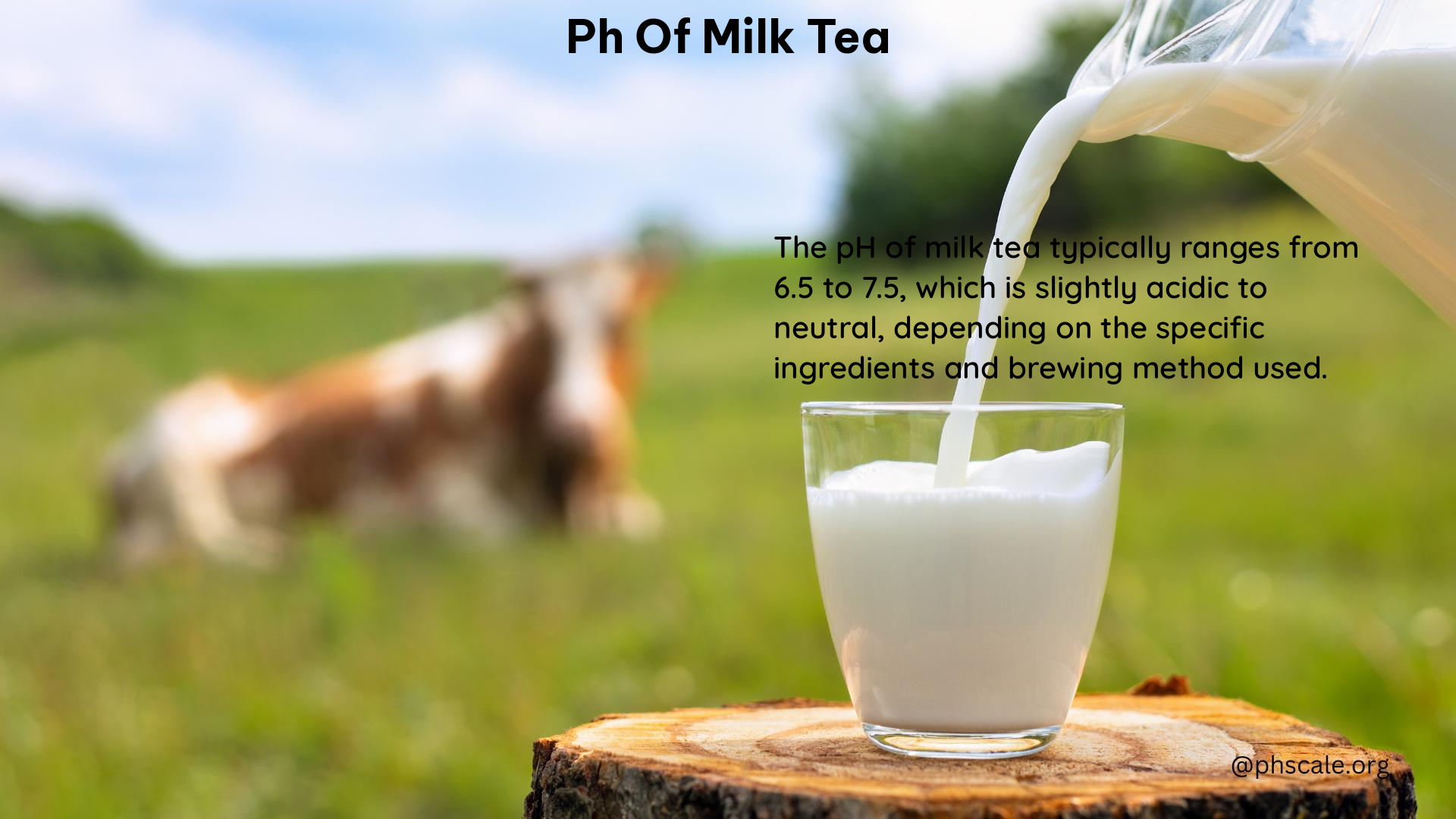The pH of milk tea can vary depending on several factors, including the type of tea, the amount of milk added, and the steeping time. Understanding the pH range of milk tea is crucial for maintaining optimal health and ensuring a balanced beverage.
pH Range of Milk Tea
Milk tea can have a pH range of around 6.0 to 7.0, which is generally considered mildly acidic to neutral. The pH level can be influenced by the type of tea used, with black tea having a pH of 6.37 and herbal tea ranging from 6 to 7. Adding milk can slightly reduce the acidity of the tea, as milk has a pH of around 6.4 to 6.8.
| Tea Type | pH Range |
|---|---|
| Black Tea | 6.37 |
| Herbal Tea | 6.0 – 7.0 |
| Milk | 6.4 – 6.8 |
Factors Affecting pH

Steeping Time
Longer steeping times can increase the acidity of the tea, as more tannins and other compounds are released during the brewing process.
Type of Milk
The pH of milk tea can also be influenced by the type of milk used. For example, almond milk or soy milk may have a different pH than cow’s milk.
Additives
Other additives like sugar, honey, or flavorings can also affect the pH level of milk tea.
Health Considerations
Tooth Health
Milk tea with a pH below 5.5 can potentially cause tooth erosion, so it is recommended to drink it through a straw and avoid holding it in the mouth for extended periods.
Digestion
Some people may find that milk tea irritates their stomach, possibly due to the acidity or lactose intolerance. Adding milk can help reduce acidity, but it may not be suitable for everyone.
Balancing pH
Dilution
Adding more water to the tea can help dilute the acidity and bring the pH closer to neutral.
Milk Alternatives
Using milk alternatives like almond milk or soy milk can help reduce acidity and make the tea more alkaline.
Herbal Teas
Choosing herbal teas, which are generally less acidic, can be a good option for those concerned about pH levels.
Contaminants and Chemicals
Pesticide Residues
Tea leaves may contain pesticide residues, which can affect the pH level and overall quality of the tea.
Heavy Metals
Some tea brands may contain heavy metals like lead or mercury, which can be harmful to health.
Additives and Preservatives
Some commercial milk tea products may contain additives and preservatives that can affect the pH level and overall health impact.
To ensure a balanced pH and minimize potential health concerns, it is recommended to choose high-quality tea leaves and milk products, steep tea for the recommended time, add milk or milk alternatives in moderation, and avoid excessive sugar or other acidic additives. By understanding the pH of milk tea, you can make informed choices and enjoy this popular beverage while maintaining good oral and digestive health.
References:
– https://www.dentistryatwinbury.com/patient-information-2/follow-up-instructions/acidityph-of-common-food-and-beverages/
– https://www.reddit.com/r/nutrition/comments/5s4c9l/mixing_tea_with_milk_ph_value/
– https://www.healthline.com/health/food-nutrition/is-tea-acidic
– https://newalbanysmiles.com/ph-values-of-common-beverages/
– https://tealeavz.com/blogs/tea-talk/is-black-tea-acidic
